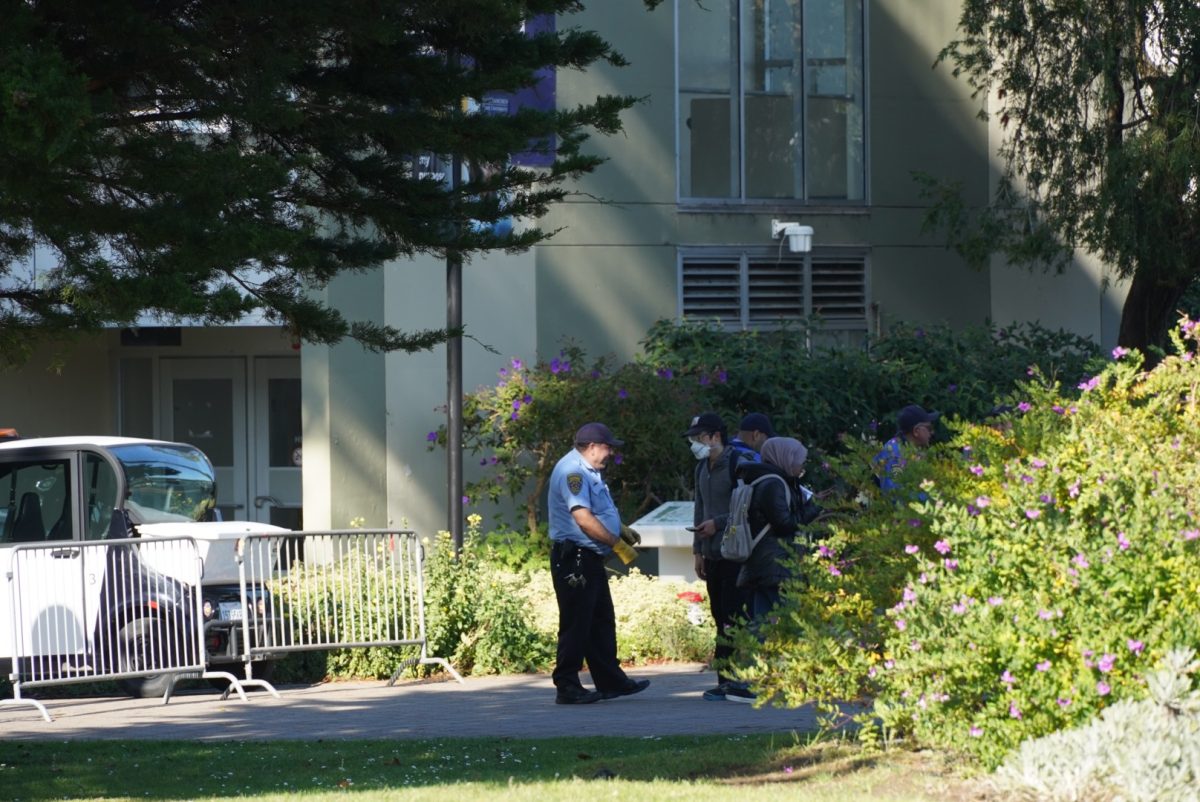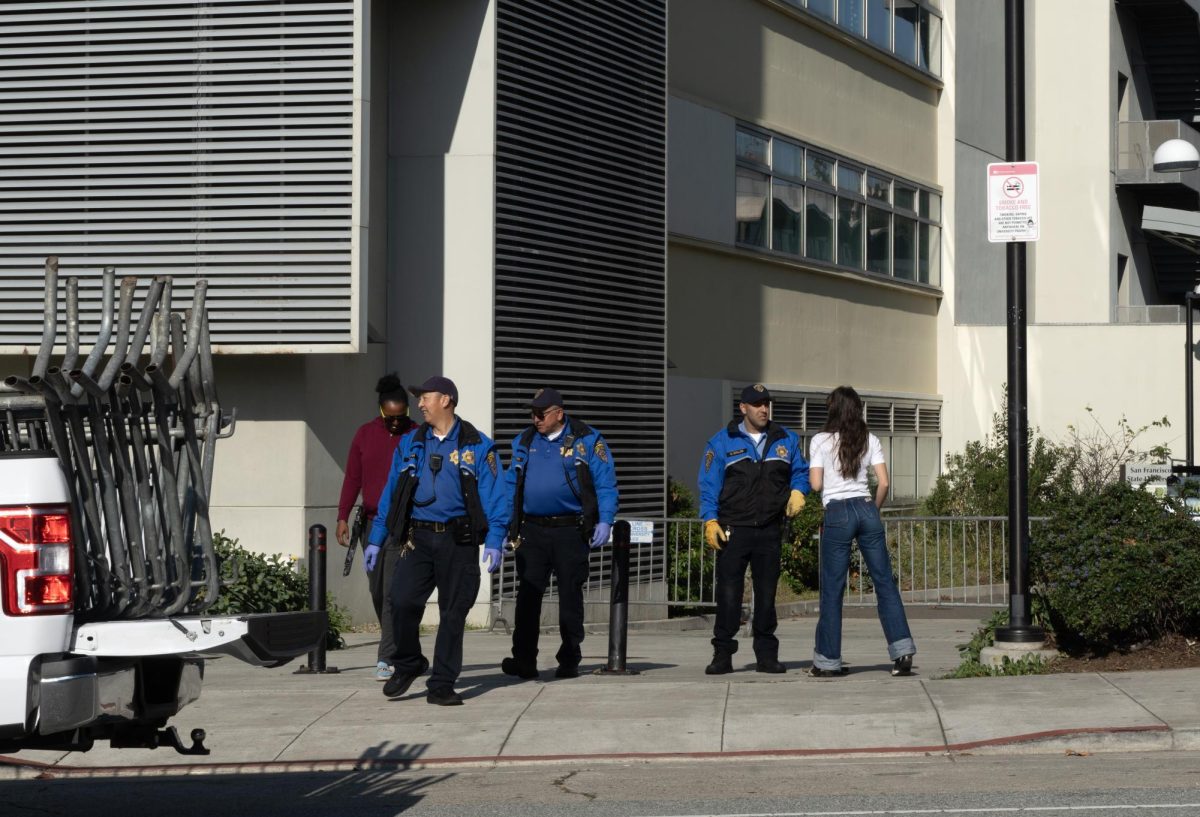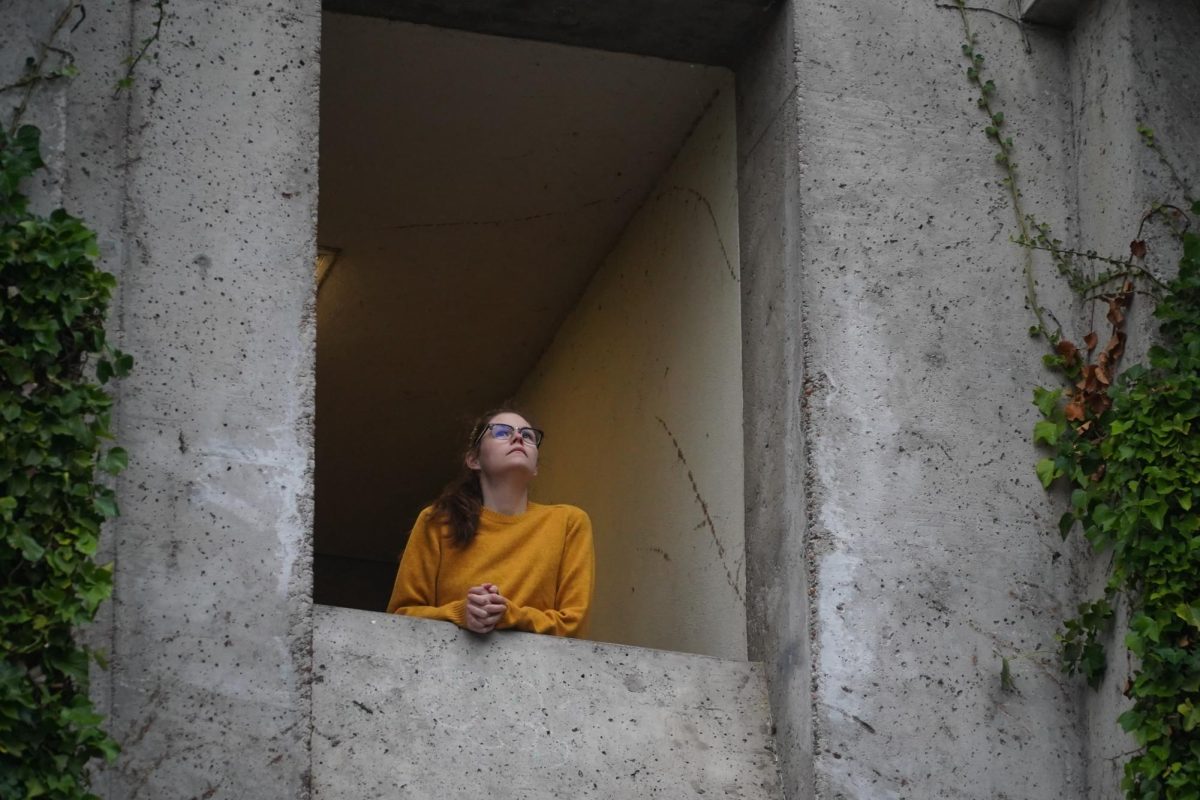A special committee of California State University trustees and an advisory committee held an open forum at Cal State East Bay Nov. 13 to hear the CSU community’s suggestions for the selection of its newest chancellor after Chancellor Thomas P. White announced his retirement Oct. 22.
The chancellor oversees all 23 CSU campuses and university presidents report directly to the chancellor. The special committee of trustees was selected to lead the search and the stakeholders advisory committee guides the search, according to CSU spokesperson Mike Uhlenkamp. The advisory committee consists of student representatives from the California State Student Association, statewide academic senate, alumni council, campus presidents and staff.
“We want to make sure that we are allowing stakeholders the opportunity to weigh in and provide insight into the knowledge, skills and ability that will be crucial for the next chancellor,” Uhlenkamp said.
White announced his retirement after serving as the chancellor since 2013. He will remain in the position until July 30, 2020. The remaining four open forums scheduled on the listening tour will take place at the Chancellor’s office in Long Beach, Cal Poly Pomona, CSU San Marcos and Fresno State until Dec. 5. Anyone interested in voicing their concerns can submit comments and nominations on the CSU website.
“It’s been very gratifying to have representatives of faculty, staff, administrators and students,” chair of the special committee Jean Picker Firstenberg said at the open forum. “It’s exciting to hear what you care about what you’re passionate about, what you want the CSU to be. Rest assured, we are not only taking notes, we take copious reports on everything we hear.”
The legacy of White’s tenure was his focus on Graduation Initiative 2025, a plan launched in 2015 to increase four-year graduation rates to 45% and eliminate equity gaps in degree completion. According to CSU, in 2019 statewide graduation rates had increased overall both for first-time students at 27.5% and transfer students at 40.4%, an all time high. At SF State, four-year graduation rates are at 18%, according to the office of institutional research.
Several students who attended the open forum brought up concerns about graduation and retention rates for the majority minority CSU campuses. Michael Wiafe, president of the California State Student Association, said the new chancellor would be an influential part of the conversation to address student concerns.
“These concerns are ones that students have been raising up for a while,” said Wiafe. “When looking at these issues, it’s about looking at the role that the chancellor has to play in them and the power that they have to affect the issues. So, it’s important to have a chancellor who will listen.”
Other concerns raised by students, administrators and staff at the open forum were on environmental sustainability, labour relations with faculty and staff unions, land acknowledgement, permanent resource center locations at all campuses and raising student tuition fees. Odalis De La O Cortez from Students for Quality Education raised the issue of how tuition costs have increased by 300% since 2002.
“I want to make sure that this new chancellor knows the consequences every time they raise tuition, because it affects us tremendously in many negative ways, and that they’re going to take us into consideration,” said De La O Cortez. “I want to make sure that they’re able to empathize with us as students and not just look at us as profit.”
De La O Cortez also mentioned the disparity in the chancellor’s salary to the high price of tuition for students who cannot afford increases. According to the CSU Executive Compensation summary, Chancellor White will make $463,855 in salary and $95,004 in housing benefits for 2019. In 2013, at the start of his tenure, he made over $452,000 in salary and benefits, according to Transparent California. He was criticized by students and employment unions in 2017 when the CSU Board of Trustees approved a 2.5% increase in top executive salaries even as they implemented increased student tuition fees across the state.
After the listening tour, CSU will continue to accept comments. Alondra Esquivel Garcia, a director on the board of CSSA and VP of external affairs for Associate Students at SF State, will conduct an open forum within the upcoming months to hear from students at SF State on what they hope the new chancellor will represent.
“A lot of our systems are not equitable for our students, it takes years and years to make those changes,” Garcia said. “The CSU is composed of 500,000 students, students run the universities. If there’s no student consultation, they’re lacking in student involvement and voice in these decision making processes.”






